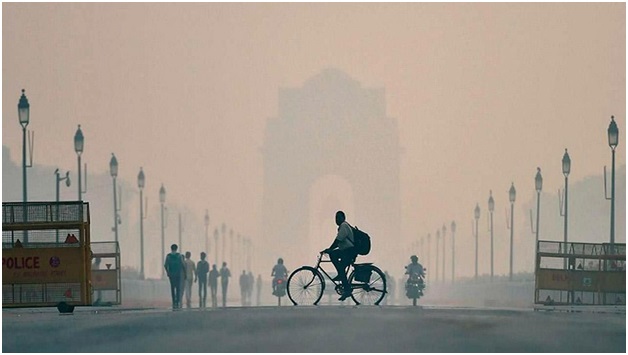Graded Response Action Plan (GRAP) (Indian Express)

- 07 Nov 2023
Why in the News?
As the Air Quality Index (AQI) in the National Capital Region reaches 'severe' levels, the Commission for Air Quality Management (CAQM) activated Stage 4 measures from the Graded Response Action Plan (GRAP) recently.
What is the Graded Response Action Plan (GRAP)?
- GRAP is a set of emergency measures that kick in to prevent further deterioration of air quality once it reaches a certain threshold in the Delhi-NCR region.
- Approved in 2016 after the Supreme Court’s order in M. C. Mehta vs. Union of India (2016) and notified in 2017.
- The Supreme Court-appointed Environment Pollution (Prevention & Control) Authority (EPCA) to implement GRAP measures till 2020.
- However, the EPCA was dissolved and replaced by the Commission for Air Quality Management (CAQM) in 2020.
- From 2021, the Commission for Air Quality Management (CAQM), a statutory body responsible for implementing GRAP.
- CAQM relies on air quality and meteorological forecasts by the India Meteorological Department (IMD) and the Indian Institute of Tropical Meteorology (IITM).
- GRAP is incremental in nature and thus, when the air quality dips from ‘poor’ to ‘very poor,’ measures listed under both sections have to be followed.
- Stage 1 of GRAP is activated when the AQI is in the ‘poor’ category (201 to 300),
- Stage 2 is when it’s in the ‘Very poor’ category (301-400),
- Stage 3 is when the AQI is the ‘Severe’ category (401-450) and finally
- Stage 4 is when it rises to the ‘Severe +’ category (more than 450).
